
Music Playlist Recommendations
In this episode, Rebecca Salganik, a PhD student at the University of Rochester with a background in vocal performance and composition, discusses her research on fairness in music recommendation systems. She explores three key types of fairness—group, individual, and counterfactual—and examines how algorithms create challenges like popularity bias (favoring mainstream content) and multi-interest bias (underserving users with diverse tastes). Rebecca introduces LARP, her multi-stage multimodal framework for playlist continuation that uses contrastive learning to align text and audio representations, learn song relationships, and create playlist-level embeddings to address the cold start problem. A significant contribution of Rebecca's work is the Music Semantics dataset, created by scraping Reddit discussions to capture how people naturally describe music using atmospheric qualities, contextual comparisons, and situational associations rather than just technical features. This dataset, available on Hugging Face, enables more nuanced recommendation systems that better understand user preferences and support niche tastes. Her research utilizes industry datasets including Last.fm and Spotify's Million Playlist Dataset, and points toward exciting future applications in music generation and multimodal systems that combine audio, text, and video.
29 Okt 52min
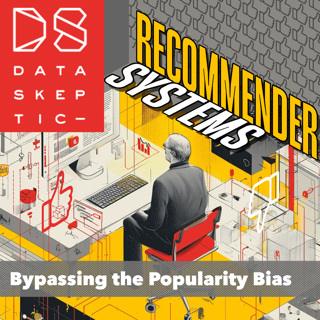
Bypassing the Popularity Bias
15 Okt 34min

Sustainable Recommender Systems for Tourism
In this episode, we speak with Ashmi Banerjee, a doctoral candidate at the Technical University of Munich, about her pioneering research on AI-powered recommender systems in tourism. Ashmi illuminates how these systems can address exposure bias while promoting more sustainable tourism practices through innovative approaches to data acquisition and algorithm design. Key highlights include leveraging large language models for synthetic data generation, developing recommendation architectures that balance user satisfaction with environmental concerns, and creating frameworks that distribute tourism more equitably across destinations. Ashmi's insights offer valuable perspectives for both AI researchers and tourism industry professionals seeking to implement more responsible recommendation technologies.
9 Okt 38min
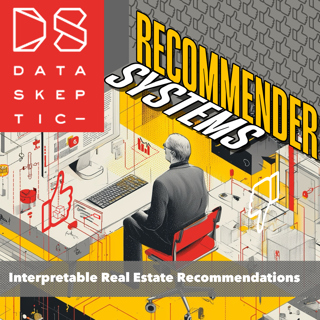
Interpretable Real Estate Recommendations
In this episode of Data Skeptic's Recommender Systems series, host Kyle Polich interviews Dr. Kunal Mukherjee, a postdoctoral research associate at Virginia Tech, about the paper "Z-REx: Human-Interpretable GNN Explanations for Real Estate Recommendations" The discussion explores how the post-COVID real estate landscape has created a need for better recommendation systems that can introduce home buyers to emerging neighborhoods they might not know about. Dr. Mukherjee, explains how his team developed a graph neural network approach that not only recommends properties but provides human-interpretable explanations for why certain regions are suggested. The conversation covers the advantages of using graph-based models over traditional recommendation systems, the importance of regional context in real estate features, and how co-click data from similar users can create more effective recommendations. Key topics include the distinction between model developer explanations and end-user explanations, the challenges of feature perturbation in recommendation systems, and how graph neural networks can discover novel pathways to emerging real estate markets that traditional models might miss.
22 Sep 32min
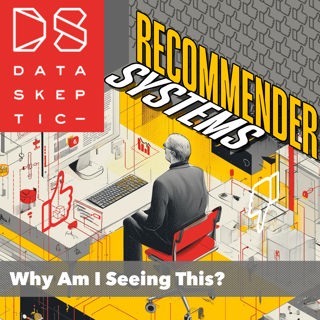
Why Am I Seeing This?
In this episode of Data Skeptic, we explore the challenges of studying social media recommender systems when exposure data isn't accessible. Our guests Sabrina Guidotti, Gregor Donabauer, and Dimitri Ognibene introduce their innovative "recommender neutral user model" for inferring the influence of opaque algorithms.
8 Sep 49min
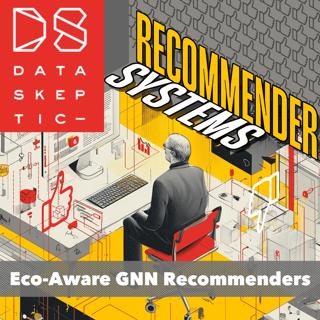
Eco-aware GNN Recommenders
In this episode of Data Skeptic, we dive into eco-friendly AI with Antonio Purificato, a PhD student from Sapienza University of Rome. Antonio discusses his research on "EcoAware Graph Neural Networks for Sustainable Recommendations" and explores how we can measure and reduce the environmental impact of recommender systems without sacrificing performance.
30 Aug 44min
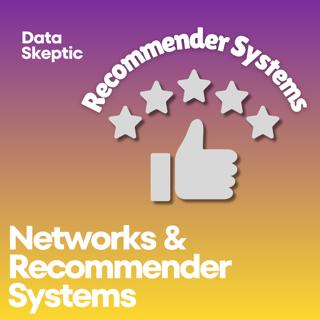
Networks and Recommender Systems
Kyle reveals the next season's topic will be "Recommender Systems". Asaf shares insights on how network science contributes to the recommender system field.
17 Aug 17min
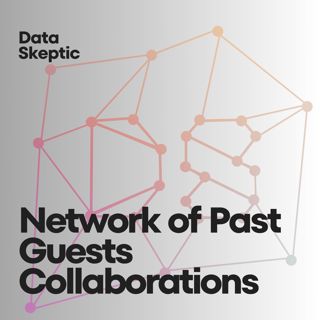
Network of Past Guests Collaborations
Kyle and Asaf discuss a project in which we link former guests of the podcast based on their co-authorship of academic papers.
21 Juli 34min





















